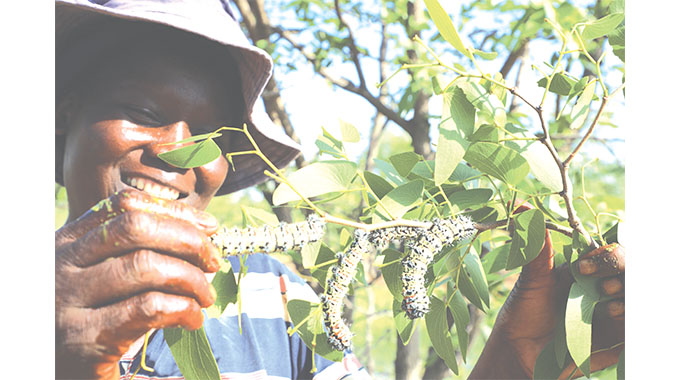Disturbed ecosystems can disadvantage communities

Mahlabezulu Zulu, Correspondent
TO understand and promote growth of nature one has to be observant. Through education, that is, learning of science subjects like biology and related subjects like Agriculture or Geography helps one to understand nature and concepts related to promotion of continuous existence of nature, for example, the ecosystems.
After reviewing the Zimbabwean curriculum, the stated subjects were introduced at elementary level, and it’s good that different stakeholders in policy making have made it mandatory that such subjects be prioritised for enrolment in institutes of higher learning, for example, nursing, teaching, agriculture and many other training institutes.
For our country to synchronise globally with the ever-improving technology and science, the idea of promoting learning of science was introduced through programs like Science, Technology, Engineering and Mathematics (STEM) in the education system. A country with more citizens which understand science is likely to find more solutions to its problems and improve its economy through improved technology.
For interest’s sake, one might ask a question: Should science knowledge acquired from such learning platforms only be applied in cities and towns where industrial production is applied for the improvement of the country’s economy?
Are rural communities also entitled to this science knowledge for social, economic and ecological survival? While l agree that science principles are more applicable in towns and cities, it’s unfortunate that rural communities have been short changed in terms of getting a fair share and benefiting from this valuable knowledge for their survival.
The fact that some of these natural resources which human beings can benefit from are harvested from rural communities such as honey from bees, mopane worms- amacimbi/madora and more means that rural communities should be part in the whole scope of ecosystem management.
For continuous existence of such natural resources, we need an ecosystem supportive environment in communities, for example a clean environment unpolluted by chemicals which destroy these living things we benefit from at their different stages of development from eggs, pupa, larva to the adult stage.
Apart from the chemicals, our actions also promote removal and complete disappearance of certain plant species which contribute to a “complete ecosystem” in communities.
It is unfortunate that some of these natural resources disappear unnoticed in most communities, that is, certain tree species which are habitats of certain types of edible worms, for example mopane worms which prefer mopane leaves, and other species of worms which come from trees like Ordeal tree-umsenya/musanha and Horn Pod Tree-Inkamamasane/mutohwe during certain seasons of the year, especially during or soon after the rainy season.
Despite the fact that such tree species continue existing in some communities, it’s unfortunate that such social, economically and ecologically important species of edible worms have completely disappeared unnoticed in some communities even during the seasons we expect them to be seen.
For those who are nature observant, the following questions will always linger in their mind; Are communities aware that tree species like Mopane, Ordeal and Horn Pod trees still exist in certain patches of vegetation in communities, but why are important edible worms associated with such trees no longer appearing during their season?
Why are the same species of trees in protected areas like forestry areas or national parks continuously having these worms during the right seasons? Due to the social and economic importance of these natural resources to communities, sometimes people have been forced to encroach into neighboring forestry or national parks to harvest these edible worms.
Encroaching to such wild animal infested areas has always been associated with many dangers to human beings, as cases of human beings attacked and some even killed by animals like snakes, lions, buffalo, elephants every year. In some cases, even though few, community members have been reported missing in wild animal infested areas in search of edible worms.
Prior to human habitation, the same tree species which promote the existence of these edible worms used to “perform their normal function” as such worms would be seen including their related life cycle, that is, butterflies which are the adult stage.
When such places became more encroached by human habitats, such important worms gradually disappeared unnoticed, and this has been the same with indigenous fruit trees found in some rural communities, for example, Monkey Orange-Umhlali/Mutamba, Snort Apple Uxakuxaku/ Mutohwe, Bird Plum Umnyi/ Munyi.
Such trees still exist in communities, but some of them are no longer performing their normal functions which benefit us human beings, that is, produce the edible fruits. One might cite reasons like we over harvest some of these natural resources, or we have other competitive predators or pests which has caused the disappearance of this part of nature from the ecosystem.
While agreeing with other think tanks that some researches can be undertaken to find the main reasons for the complete disappearance of such natural resources.
The mammoth question is: With our basic and advanced science knowledge do we notice the disappearance, for example, of butterflies or moths associated with these edible worms, or other insect pollinators associated with some of our indigenous fruit trees?
Most natural ecosystems will work very well, and benefit us as human beings if we don’t interfere with them, for example destruction by burning of certain species of grass which harbor life cycle stages of valuable insects, and avoid promoting use of synthetic chemicals which destroy life cycle stages of these natural resources.
As communities, it is benevolent that we cultivate a culture of observing, and promoting the existence of natural ecosystems in our communities as they promote the existence of some of the natural resources which benefit us as human beings, and rural communities also need the science related principles to survive!
Mahlabezulu Zulu is a conservationist who has worked for various wildlife research, and conservation organizations in Hwange National Park, and Fuller Forestry in Victoria Falls. He can be contacted on 00263(0)713269827/0776196171. Email [email protected] or [email protected]









Comments